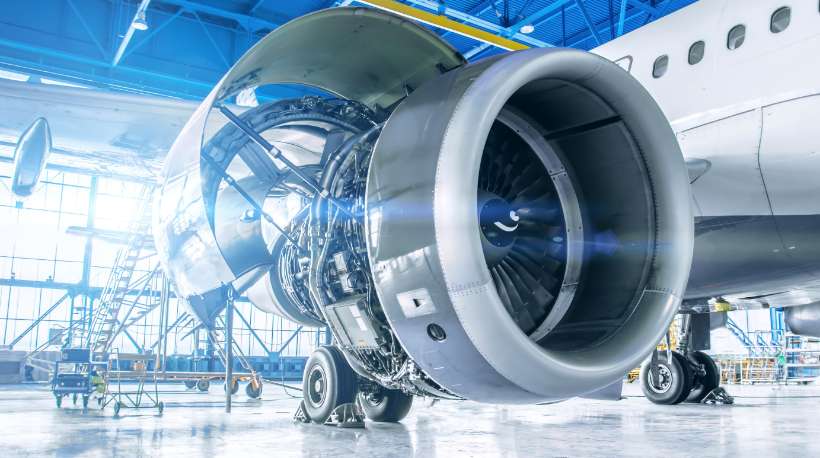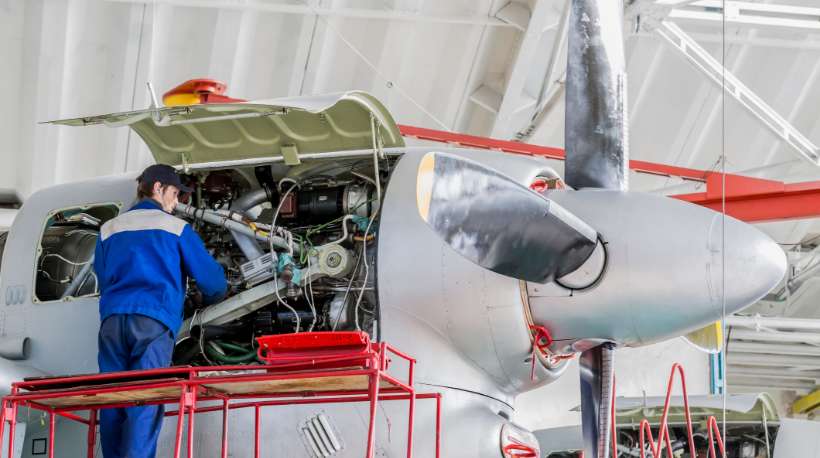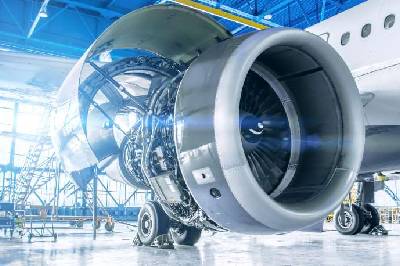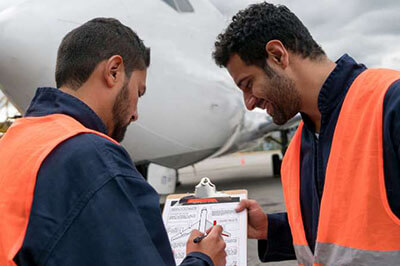Aerospace supply chain issues continue to create challenges for the aviation industry in 2023, making it difficult for many aerospace industry players to manage pandemic-related disruptions.

Article Contents
The global aviation industry is experiencing a rebound after the pandemic, but it is not without significant concerns. The pandemic has had a considerable ripple effect throughout the aviation industry, with aerospace supply chain problems being one of the most complex challenges. Aviation supply chain management involves working with various tiers of suppliers situated across different regions and countries, making it incredibly challenging for industry players to manage pandemic-related disruptions.
Today, in 2023, aerospace supply chain issues continue to pose daunting challenges to the aviation industry. These challenges range from rising inflation to a depleting workforce — along with delays and disruptions in raw material component deliveries, manufacturing and assembly operations and the transportation of finished products. Thankfully, some companies, such as Air Power Inc., have managed to stay competitive by proactively addressing supply chain issues in aviation, while others continue to struggle.
In this article, we'll examine the impact of aerospace supply chain issues on the global aviation industry, with particular attention to the challenges that industry players face.

Understanding Aerospace Supply Chain Issues In 2023
Effective and efficient aerospace supply chains are critical to aviation organizations functioning successfully. These supply chains are highly intricate, comprising multiple tiers of suppliers, including original equipment manufacturers (OEMs), prime contractors and integrators, repair and overhaul providers, small parts suppliers and maintenance support teams.
Moreover, aviation supply chain suppliers and customer bases have become increasingly global over the past few decades. With the adoption of digital technologies and the operation of a just-in-time basis, airline industry supply chains have become more complex, making managing them a challenge to navigate even in the best of times.
The disruption of global transportation and logistics networks has emerged as one of the primary factors contributing to aerospace supply chain issues in 2023. The delays in the delivery of raw materials and components to manufacturing sites have made it difficult for airplane part manufacturers to maintain production schedules, leading to reduced output and increased costs.
The COVID-19 pandemic has exposed the vulnerabilities and complexities of the airline industry supply chain. The industry must prioritize effective aviation supply chain management to ensure efficient production schedules and timely product delivery as it continues to recover from the pandemic.
How Inflation Is Causing More Aerospace Supply Chain Problems
Inflation is one of the chief challenges facing the aviation supply chain and global aviation industry. In the USA, inflation has been around 8%, while in Europe, it has been about 10%. As a result, airplane part manufacturers face higher costs for materials and labor, which places significant cash constraints on the supply chain. In addition, some companies may face unpleasant consequences from creative pandemic-era financing arrangements that were implemented to weather the recent aerospace downturn.
During the pandemic, some airplane part manufacturers provided "forward" capital to financially struggling suppliers to stabilize their supply chains. This forward capital was provided through debt purchases or advance-payment arrangements. Additionally, companies received government aid related to the pandemic and borrowed cash at exceptionally low-interest rates. However, government aid has ceased, and interest rates have risen sharply, making these creative forward-capital arrangements less feasible.
Why Labor Shortages Have Created More Supply Chain Issues In Aviation
The shortage of skilled workers to produce airplane parts in the US and Canada poses another significant challenge to the airline industry supply chain. While inflation and logistics issues pose a problem to suppliers, the shortage of skilled labor is widely recognized as the most significant hurdle.
In response to the decline in air travel during the pandemic, many airplane part manufacturers laid off a substantial portion of their workforce, resulting in a severe shortage of skilled employees required to restore the aviation supply chain to pre-pandemic levels. Aircraft manufacturing involves a high degree of craftsmanship, and the learning curve is often several years long.
The issue is even more challenging for sub-tier airplane part manufacturers that may have transferred their labor to other industries with more predictable demand. Consequently, manufacturers are finding it difficult to re-skill their businesses. Although aerospace manufacturers are hiring more employees, the cost of attracting skilled workers is escalating, impacting current staff salaries and further stressing smaller suppliers. The industry is poised for restructuring, with potential takeovers by larger companies or customers.
Russia's Effects on the Aerospace Supply Chain
The inability of many airplane part manufacturers to meet the demand for specific parts is also causing aerospace supply chain problems. Unfortunately, this has only been exacerbated by the ongoing Russian-Ukraine conflict.
At least some global supply chains depend on sourcing required raw materials from Russia, particularly titanium. Before the sanctions against Russia in 2022, the country supplied half of the titanium used in aircraft. We can link supply chain issues in aviation to the Russian-Ukraine conflict by examining the titanium needs of three major OEMs: Embraer, Airbus and Boeing. 100% of the titanium used in Embraer aircraft, 65% of the titanium used in Airbus aircraft and nearly 35% of the titanium used in Boeing aircraft is sourced from Russia.
As a result of the conflict, lead times for suppliers to source materials or components can now exceed a year, jeopardizing airplane part manufacturers' plans to increase production. An engine comprises approximately 23,000 parts, and a shortage of just a few can hinder delivery.
How Air Power Inc. Combats Aerospace Supply Chain Problems
Air Power Inc. has managed to weather the storm of aerospace supply chain problems during the pandemic. We take great pride in maintaining a competitive edge over our competitors by proactively managing our supply chain.
Air Power Inc. has a large inventory of in-stock engines ready to ship, which has been invaluable for our customers. As other companies in the industry struggle to fulfill orders due to aerospace supply chain problems, Air Power Inc. has provided its customers with fast and reliable access to the engines they need. This unique advantage has also allowed us to maintain our pricing power. While other companies in the industry have been forced to increase prices due to supply chain disruptions, we have been able to keep our prices low while our quality stays high.
Don't Let Aerospace Supply Chain Issues Hold You Back – Shop Air Power Inc. Today!
Aerospace supply chain issues and high prices shouldn't prevent you from pursuing your passion. If you're in a time crunch and require a refurbished or factory-new aircraft engine, Air Power Inc. is here to help. Our aircraft engines are always available, in stock and ready to ship. Thanks to our close relationship with Lycoming and Continental®, we provide access to new, used and rebuilt aircraft engines ready for purchase. That way, your aircraft won't stay grounded for months while you wait for your back-ordered items to ship.
Shop our complete catalog of in-stock, ready-to-ship aircraft engines to locate the perfect Lycoming engine or Continental engine parts to match your aircraft's make, model and flying requirements today. If you require additional information or have any questions about our products, don't hesitate to contact us. Our team is always available to help.
Shop In-Stock Engines Today



